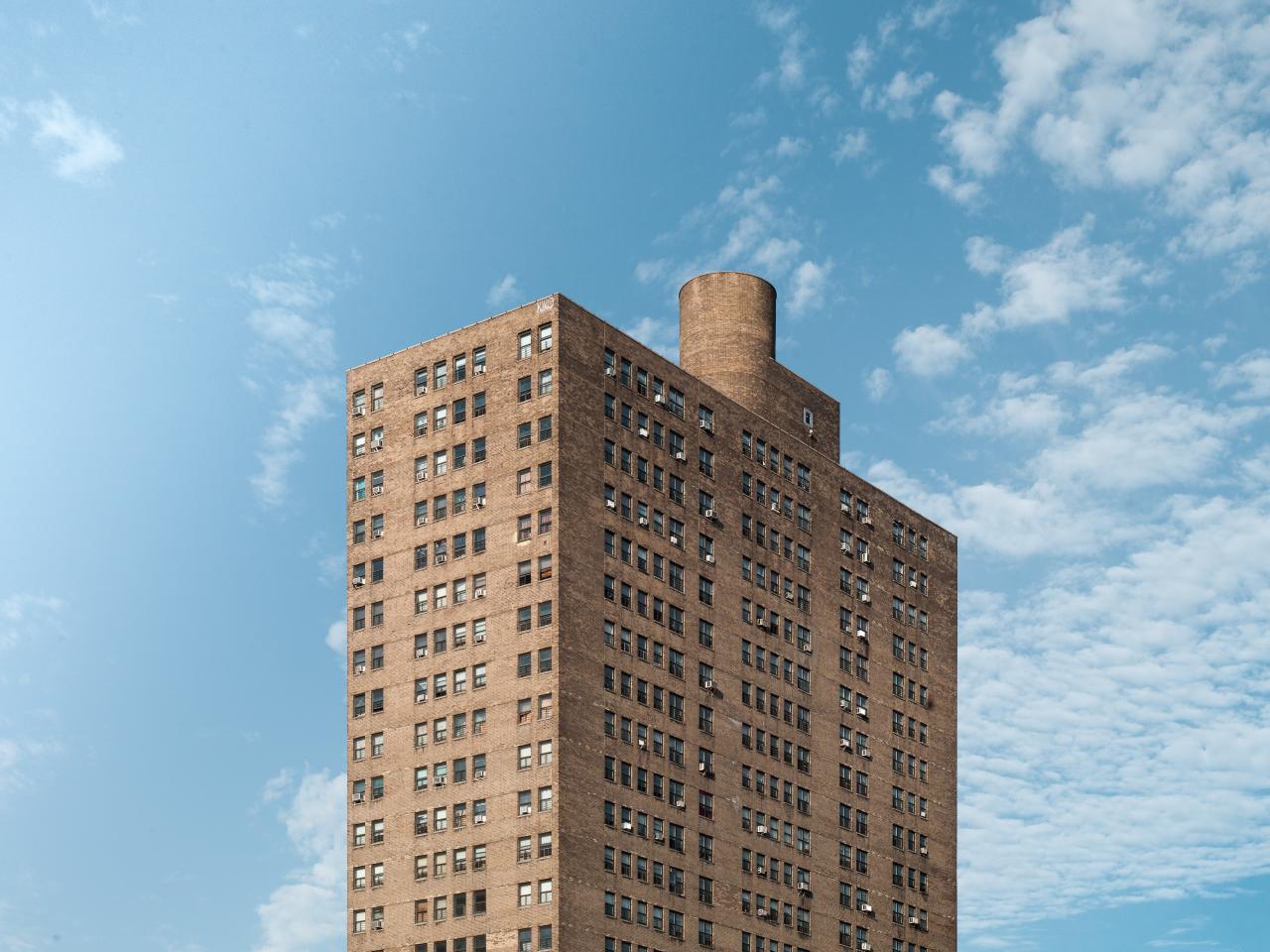Immigrant tenant rights
A guide to tenant protections against harassment and discrimination
Guidance on the rights of immigrant tenants
Immigrant tenants in New York are protected by federal and state housing and anti-discrimination laws. In addition, some localities provide additional tenant protections, which may depend on the type of housing accommodation. No matter the type of tenancy, however, all tenants — regardless of immigration status — have the right to live in their homes free from harassment and threats by their landlord.
Tenants with specific concerns are advised to consult with a lawyer. The hotline number below can provide access to legal advice. Tenants may also file complaints with the Office of the New York State Attorney General (OAG). You can access and complete our complaint form on our website.
The OAG does not ask tenants to report their immigration status when making a complaint. No matter the type of tenancy, all tenants — regardless of immigration status — have the right to live in their homes free from harassment and threats by their landlord.

Can my landlord evict me from my apartment because of my immigration status?
No. If you have a lease, you cannot be evicted on the basis of your immigration status. Tenants with leases are protected from eviction during the lease period as long as they do not violate any substantial provision of their lease or any local housing law or code.
If you do not have a lease and are paying rent on a month-to-month basis, you also have rights against unlawful evictions that apply to all tenants — including non-citizen tenants. Tenants without leases who have lived in their homes for 30 days or more must be given formal notice from the landlord and the chance to go to court before they can be evicted. See New York State Real Property Law (NYS RPL) section 232-a-b.
All tenants, regardless of their immigration status, can be evicted only after the landlord has served them with a termination notice and obtained a court order from a judge authorizing the eviction. Even then, only a sheriff, marshal, or constable — and not the landlord — can carry out the court-ordered eviction of the tenant. Also, all tenants, regardless of immigration status, have the right to defend themselves in court. Landlords are also not allowed to take the law into their own hands to evict non-citizen tenants. It is illegal for a landlord to:
- threaten tenants with violence to induce them to vacate
- lock a tenant out of the apartment
- remove a tenant’s possessions
- cut off essential services — such as electricity, heat, or water
If your landlord, for example, locks you out or forces you to leave by denying services, you can go to court to bring an action against your landlord. A judge could then grant you the right to return to your home. In some cases, the judge could direct the landlord to pay you money damages. In New York City, landlords who unlawfully evict tenants can also be subject to criminal prosecution.
If your landlord does obtain a court order to evict you, you are still entitled to a reasonable amount of time to remove your furniture and other belongings — and landlords are never allowed to keep your possessions.
Also, depending on where you live, your apartment may be subject to the rent-regulation laws, which provide tenants with additional protections against landlord harassment and prevent landlords from forcing you out of your home.
Rent-regulated tenants have extra protections. How do I know if I am a rent-regulated tenant?
In New York City, apartments or rooms generally are rent regulated if the building was built before 1974 and contains six or more housing units. Other buildings that are receiving tax benefits from the government are also subject to the rent-regulation laws. Limited areas outside of New York City also have rent-regulated buildings, including Nassau, Rockland, and Westchester counties.
To find out if your apartment is rent regulated, or should be, you can contact the New York State Division of Housing and Community Renewal (HCR)'s Office of Rent Administration at: (833) 499-0343 or emailing rentinfo@hcr.ny.gov
Or call the New York State Office of New Americans hotline at 1-800-566-7636 and ask to be connected with a legal services provider to help you find out if your apartment is rent-regulated.
Harassment of tenants based on immigration status is not only appalling, it’s unlawful.
What rights do I have if I am an immigrant rent-regulated tenant?
Rent-regulated tenants, regardless of immigration status, have especially strong protections. Tenants living in rent-stabilized apartments, with few exceptions, have the right to a renewal lease with a limited increase in rent. This means that, if you live in a rent-stabilized apartment, your landlord is not allowed to deny you a new lease when your current lease expires. Your landlord can also only raise the rent by a limited amount determined by the Rent Guidelines Board, which regulates rent-stabilized apartment leases. Tenants in other rent-regulated housing, such as rent-controlled apartments and rent-stabilized hotel rooms, also have the right to remain in their homes unless a court finds there is a legal basis for termination of their tenancies.
In addition, the rent-regulation laws prohibit landlords from harassing their tenants in order to force them to leave their apartments or give up their rights, and landlords who harass rent-regulated tenants may be subject to civil or criminal penalties.
Landlords of rent-regulated buildings must also register their buildings and apartments, including the rent they are charging you, with HCR. You have the right to view the records submitted about your apartment to make sure that your landlord is not lying about how much they are charging you or whether your apartment is rent regulated.
Tenants, regardless of their immigration status, can file complaints with HCR if they believe they are being harassed or overcharged; denied or experiencing reductions in services, like heat, water, or building access; or if their landlord requires them to provide immigration status information as a condition to renew their lease. To protect tenants from discrimination, HCR has created the Fair and Equitable Housing Office (FEHO). Visit HCR's FAQ guide on Immigration Status, Housing Discrimination and Tenant Harassment to learn more.
If my apartment is not rent regulated, and my landlord makes threats and demands that I leave, are there other laws that protect me?
Yes. All tenants have the right to live in their homes free from harassment and threats from landlords.
New York state laws make it illegal for landlords to engage in any action that is intended to force immigrant tenants out of their homes or to force immigrant tenants to give up their rights under law. This means that your landlord or anyone acting on your landlord’s behalf is legally prohibited from interfering with your privacy, comfort, and quiet enjoyment of your home. For example, landlords cannot threaten physical violence, engage in verbal abuse aimed at you or your family, deny you essential services like heat or hot water, or repeatedly take you to court based on frivolous claims.
In New York City, the laws against tenant harassment are especially strong. The New York City Tenant Protection Act, for example, makes it illegal for most landlords to repeatedly demand that you accept unwanted buyout offers intended to make you leave your home.
As with the other laws governing the landlord-tenant relationship, New York’s tenant-harassment protections apply to all tenants, regardless of immigration status.
If your landlord is harassing you, you should contact a lawyer to find out if you should file a complaint in court or with a government agency against your landlord.
My landlord says that I have to leave because I am an immigrant; is that legal?
No. But your rights differ depending on where you live and the type of housing you live in.
In New York City, if you live in a rent-regulated apartment, the laws apply to housing regardless of your immigration status. All tenants living in rent-stabilized apartments are entitled to protections, including guaranteed renewal leases with limited rent increases. In addition, landlords are not allowed to terminate a rent-regulated tenancy simply because they fear being investigated by law enforcement regarding their tenants’ immigration status.
There are also various civil rights laws that protect immigrant tenants from housing discrimination.
If you are a New York City resident, the New York City Human Rights Law protects you. This civil rights law prohibits discrimination on the basis of actual or perceived immigration status—meaning that your landlord is not allowed to deny you a lease, or refuse to rent to you, or demand special papers from you just because you are an immigrant. An immigrant tenant in New York City may also not be evicted, threatened, or harassed simply because of actual or perceived immigration status. See New York City Administrative Code section 8-107(5). This means that, if you live in New York City, it is illegal for your landlord to discriminate in any way against you on the basis of your (or a family member’s) immigration status. Landlords in New York City are also generally prohibited from requiring tenants to reveal their immigration status except in very limited circumstances.
If you live outside of New York City, there are other anti-discrimination laws that may apply to your situation, such as the federal Fair Housing Act and the New York State Human Rights Law.
The federal Fair Housing Act, which covers most rental buildings, prohibits discrimination based on race, color, national origin, religion, sex, familial status, and disability. See United States Code title 42 section 3604.
In addition, the New York State Human Rights Law prohibits landlords, property managers, and their agents from refusing to rent to, renew the lease of, or otherwise discriminate against, any person or group of persons because of race, creed, color, national origin, disability, age, marital status or familial status. See New York State Executive Law section 296(5).
As an example, statewide, it would be illegal for a landlord to request documents only from immigrants of a certain national origin (the country where you are from) or race, or for the landlord to refuse to rent to immigrants or try to evict immigrants based solely on their national origin.
Are there are any other rights that I should know about?
Yes. You should know that your landlord is not allowed to retaliate against you for asserting your rights.
Both New York City and state human rights laws forbid landlords from retaliating against tenants who claim that they have been discriminated against. See New York State Executive Law section 296(7) and New York City Administrative Code section 8-107(5). Even if you file a complaint in court or with a government agency about something, for example, because your landlord turned off your hot water or denied you another basic service, a separate section of the law forbids your landlord from retaliating against you for defending your rights as a tenant. See NYS RPL section 223-b.
Together, these laws make it illegal for landlords to threaten you or take other negative action simply because you have filed a tenant complaint with the Office of the New York State Attorney General or a legal complaint in court.
What should I do if my landlord is harassing me or threatening to evict me because of my immigration status? Are there are any rights that I should know about?
If you are feeling threatened by your landlord due to your immigration status, consult a lawyer, or call the New York State Office of New Americans hotline and a representative can help connect you with a lawyer or legal services organization. The hotline’s number is: 1-800-566-7636.
If you have been subject to discrimination relating to your housing, you can file a complaint with the New York State Division of Human Rights, which can be contacted at 1-888-392-3644. You can also download the Division of Human Rights' Fair Housing Guide from the agency's website. If you live in New York City, you can also call 311 to file a complaint with the New York City Commission on Human Rights. You can also visit the Commission on Human Rights' website to read more information, including a fair housing guide.
It is important to remember that as a tenant in New York you have rights and laws that protect you — regardless of your citizenship status. The laws governing the landlord-tenant relationship protect you from harassment and unlawful evictions. Under federal and New York law, landlords are prohibited from discriminating based on race or national origin, among a variety of other protected classes. And under New York City law, it is illegal for landlords to discriminate on the basis of actual or perceived immigration status.
Is there anything else that my neighbors and I can do?
Yes. You can organize!
Immigrant tenants — like all tenants — have the right to organize. Tenants, regardless of immigration status, may form, join, and participate in tenant organizations for the purpose of protecting their rights. Landlords must permit tenant organizations to meet, at no cost, in any community or social room in the building, even if the use of the room is normally subject to a fee. These meetings should be held at reasonable times and in a peaceful manner. See NYS RPL section 230.
For more information on the rights and responsibilities of tenants and landlords, please review the Office of the New York State Attorney General’s Tenants’ Rights Guide.
If you are feeling threatened regarding your immigration status, please call this New York hotline, and a representative will connect you to the right organization.
Immigration hotline: 1-800-566-7636


